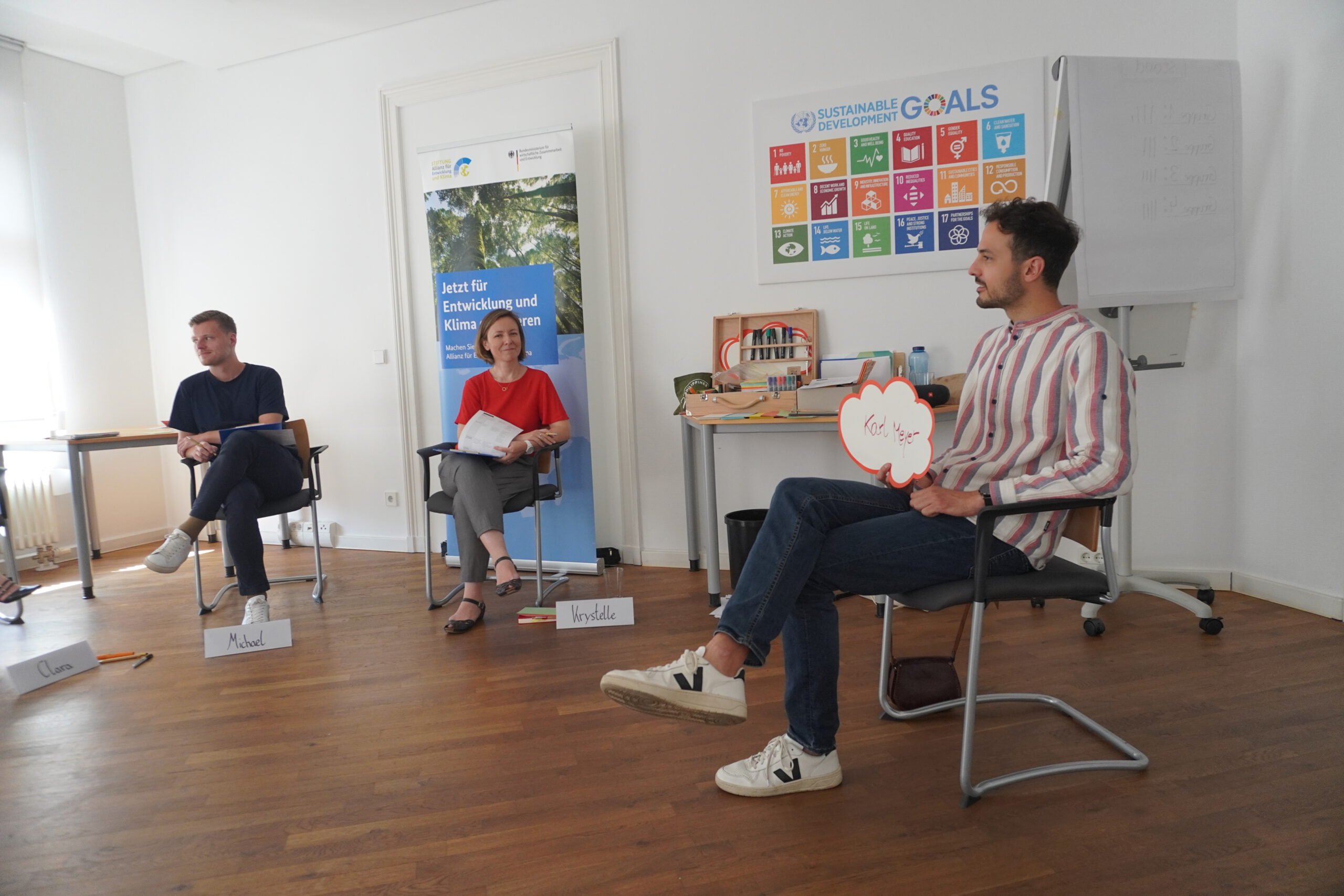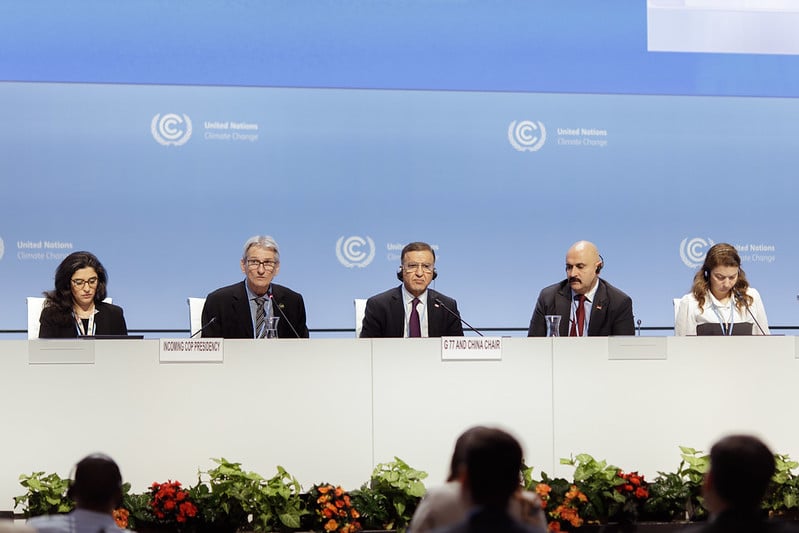
Psychology of COPs

Why We Need to Make Climate Conferences Psychologically Smarter
Climate diplomacy is ultimately a global commons dilemma: everyone benefits in the long term from protecting the planet, yet in the short term national interests dominate. This leads to familiar patterns – delay, blame-shifting, polarization, or withdrawal.
This is exactly why climate conferences need psychological intelligence. During my year as a Mercator Fellow – working with SIDS governments, international NGOs, and in close exchange with the COP30 Presidency – I learned that climate negotiations are not just about technicalities and legal texts. They are profoundly human.
As an observer at the Loss and Damage negotiations during SB62 in Bonn, I witnessed how painstakingly trust grows and how quickly it can break. I saw faces harden after twelve-hour sessions, when nerves were frayed – and how a small gesture, an honest “thank you,” or a moment of respectful listening could suddenly open doors that had just been closed.
What is negotiated in these rooms will decide the future of this planet. Yet the psychological dimension is still rarely considered. It is not a side issue, but a key to success.
1. Trust – the Decisive Currency
Trust is the real currency of international climate politics – not only between cultures, but also toward political structures, delegations, and processes.
- Social trust emerges when people know each other, appreciate one another, and have weathered long nights of negotiations together.
- Political trust focuses on institutions and agreements – and is often lower, shaped by broken promises and unfulfilled finance commitments.
The paradox: people may trust one another but distrust the structures in which they act. Psychology can help build bridges.
2. Emotions and Resilience
Negotiations are emotionally demanding. Delegates must cope with frustration, fatigue, and political pressure – while staying strategically capable of acting.
Psychological tools help:
- Reappraisal reframes setbacks as opportunities to learn.
- Emotional intelligence improves understanding of oneself and others.
- Networks and mentoring strengthen resilience over the long term.
Resilience is not a fixed trait – it can be trained.
3. Psychological Safety – Formal and Informal
In formal sessions, every word is weighed carefully. Delegates often speak only if they are absolutely certain. Informal conversations on the sidelines – over coffee, in hallways, in the evening – are different. Here, openness and trust can grow.
Psychologist Timothy R. Clark describes four stages of psychological safety: Inclusion, Learner, Contributor, Challenger Safety. In negotiations, usually only the first two are within reach. But genuine change requires the last two as well – the ability to contribute ideas and to challenge the status quo.
4. Identity, Narratives, and the Shared “Mutirão”
Climate diplomacy is also identity politics. “Us versus them” – North versus South – undermines cooperation. Yet identity can also connect: if a collective identity of the willing can be created – a shared Mutirão, as the Brazilian COP30 Presidency calls it – energy and cohesion emerge.
What matters is not only belonging but also the sense of collective efficacy. Many doubt whether political action truly has an impact. Only when identity and efficacy come together does collective agency grow: the conviction that “together, we can make a difference.”
5. Frontline Stories and Empathy
A gap often yawns between frontline realities and the abstract texts debated in negotiations. Storytelling can bridge that gap.
Authentic stories from SIDS change more than any statistic. They make abstract risks tangible, evoke empathy, and can shift processes toward compassion and responsibility. To succeed, delegates from SIDS must bring their voices strategically to the table – and industrialized countries must open their hearts to empathy. Facilitators can help by making the human stakes visible, without applying so much pressure that constructive thinking is blocked.





6. Collective Intelligence and Tipping Points
The climate crisis is a super wicked problem, shaped by looming physical tipping points such as melting ice sheets. Climate conferences are humanity’s attempt to respond – themselves complex systems with many actors and competing interests.
Psychology helps turn this diversity into a resource. Formats that foster collective intelligence – listening, perspective-sharing, systemic dialogue methods – make groups smarter than individuals alone. And psychology can help intentionally trigger social and diplomatic tipping points, as at the Paris Agreement, when the seemingly impossible suddenly became reality.
7. Cognitive Load and Heuristics
COPs are overwhelming. Faced with hundreds of sessions and thousands of pages of text, people fall back on heuristics – mental shortcuts. The dual-process theory shows: only with time, energy, and motivation do we use the deep, reflective route. Under stress, fatigue, or pressure, we default to the heuristic route – fatal in complex negotiations.
Structures are needed to safeguard deeper processing: clear language instead of jargon, visuals instead of text overload, and pauses for reflection. Only then can good decisions still be made on the very last day.
8. From Promises to Implementation
The real challenge begins after a COP: implementation. Targets are often too weak, submitted too late, or fail to make it into national law.
Psychology explains why:
- People prefer short-term gains.
- Commitments remain vague without clear if-then plans.
- Lack of ownership stalls progress.
Narratives, commitment devices, and structures that create agency and responsibility are essential if COP30 is to become an Implementation COP.
Conclusion: Psychology as an Enabler
During my year with governments, NGOs, and the COP30 Presidency I learned: psychological dynamics decide whether climate diplomacy succeeds or fails.
Trust, resilience, identity, empathy, psychological safety, collective intelligence – none of this is secondary. Psychology is not a “soft factor,” but a systemic enabler that makes ambition, cooperation, and implementation possible in the first place.
If the world is to move from negotiation to implementation, COPs must become psychologically smarter. Only then can we bridge divides – and secure solutions for our shared future.
About the Author
Janna Hoppmann is a psychologist and Mercator Fellow on International Affairs. She has been working for many years at the intersection of psychology, climate, and politics – including with governments of SIDS, international NGOs, and currently in close exchange with the COP30 Presidency. With ClimateMind, she brings psychological expertise into international climate negotiations, the work of delegations, and transformative dialogue formats.
👉 If you would like to strengthen your delegation, alliance, or organization at COP30 or beyond – for example through trust-building, resilience training, or strategies for storytelling and collective agency – Janna looks forward to hearing from you via email.
Have questions or want to connect? Feel free to reach out – or stay in touch through our newsletter, join our online academy and our community.


